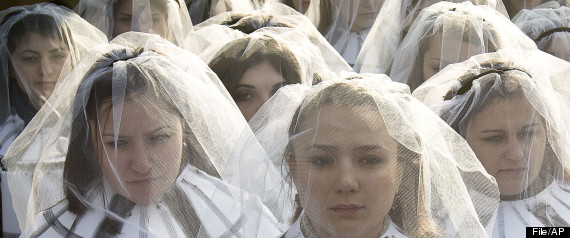Yes, there’s a war on women in America. But it’s not the phony “war” that tampon-hurling feminists are always shrieking about — as they did last week in Texas to protest tougher regulations on dangerous late-term abortion clinics. No, I’m talking about a real war on women waged by Saudi royals and elites who’ve imported human trafficking and abuse of domestic workers onto U.S. soil.
Videos By Rare
Meet Meshael Alayban of Saudi Arabia, wife of Abdulrahman bin Nasser bin Abdulaziz al-Saud. She apparently thought we Americans would look the other way at human trafficking and abuse of domestic workers — you know, the way they do in her misogyny-infested home country. The wealthy Meshael Alayban thought wrong.
Last week, Orange County, Calif., prosecutors charged Alayban (who lists her occupation as “princess” on her tourist visa) with felony human trafficking. Enslavement. A Kenyan maid escaped from Alayban’s compound earlier this month after allegedly being held against her will. She told police Alayban confiscated her passport, refused to abide by an employment contract and forbade the worker from returning to her home country — where she has an ailing 7-year-old daughter.
When law enforcement officials entered Alayban’s mansion, they found four other domestic workers from the Philippines who also have indicated a desire to be freed from Saudi bondage. The servants tended to the round-the-clock needs and whims of the princess, her husband, their three young children, a grandmother and three other extended family members. Last week, Alayban posted $5 million bail (paid for by the Saudi consulate) and was whisked back to her estate by a phalanx of bodyguards. She must wear a GPS tracking device and will be arraigned at the end of the month. Her high-priced lawyers dismiss the incident as an insignificant “wage dispute.”
Orange County District Attorney Tony Rackauckas minced no words: “It’s been 150 years since the Emancipation Proclamation, and slavery has been unlawful in the United States, and certainly in California, all this time, and it’s disappointing to see it in use here.” Fortunately for the alleged victim, California has an anti-human trafficking law put in place by voters through a state initiative last year. Alayban may enjoy countless royal privileges back in Saudi Arabia, but here she’ll have to face the legal music.
The same cannot be said for the alleged abuser(s) of two Filipino women who escaped a Saudi diplomatic compound in Virginia earlier this year. At the end of April, the women broke free and were taken into protective custody by Department of Homeland Security personnel. The gated complex is owned by the Kingdom of Saudi Arabia’s Armed Forces Office, whose personnel reportedly enjoy full diplomatic immunity. What exactly happened, who is responsible, and what are the consequences? The Department of Homeland Security has not responded to my follow-up inquiries about the case.
These recent cases must be set against the cultural backdrop of abuse and violence by Saudi royals and elites. In 1995, Saudi princess Maha al-Sudairi allegedly beat a servant in Orlando, Fla., whom she had accused of theft, while off-duty deputies serving as her private security guards watched. The officers were later disciplined for not stopping the beating and failing to write a report and follow up on a tip that another of the princess’s slaves had been beaten, according to local news reports. Al-Sudairi fled to Europe, where she has racked up tens of millions of dollars in unpaid debts to luxury stores, art galleries, hotels and other furious creditors.
In 2002, an Indonesian maid in Florida called 911 after Saudi princess Buniah al-Saud allegedly beat and pushed the servant down a flight of stairs. On a dispatcher’s audiotape, the maid was heard “crying hysterically” and pleaded through a translator: “Help me. Help me. The boss pushed me down the stairs.” Al-Saud pleaded no-contest in Florida and was fined a measly $1,000.
In 2006, Saudi princess Hana Al Jader was arrested in Boston on charges of forced labor, enslavement and visa fraud involving two Indonesian maids. She received two years’ probation and deportation back to Saudi Arabia.
Also in 2006, Saudi national Homaidan al-Turki was convicted in Colorado for the brutal sexual assault and enslavement of his Indonesian housekeeper. Al-Turki was a married graduate student at the University of Colorado with four children. He petitioned for and was denied parole this spring after refusing to participate in sex-offender treatment — which he says violates his Islamic faith.
While many Saudi enslavers and abusers have been charged, untold cases are abandoned. Brandon Darby, who worked with the FBI in an undercover capacity on anti-human-trafficking efforts in 2011-2012, told me that “the Justice Department, specifically the FBI and U.S. Attorney’s Office, have backed away from aggressively pursuing human-trafficking cases.”
Political correctness and diplomatic fecklessness are the handmaidens of women’s subjugation, right here in the U.S. of A.
Michelle Malkin is the author of “Culture of Corruption: Obama and his Team of Tax Cheats, Crooks and Cronies.”
© CREATORS.COM

